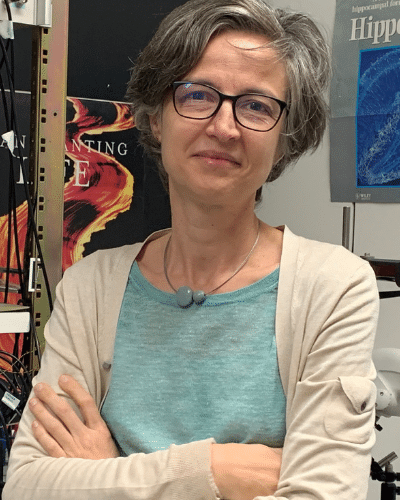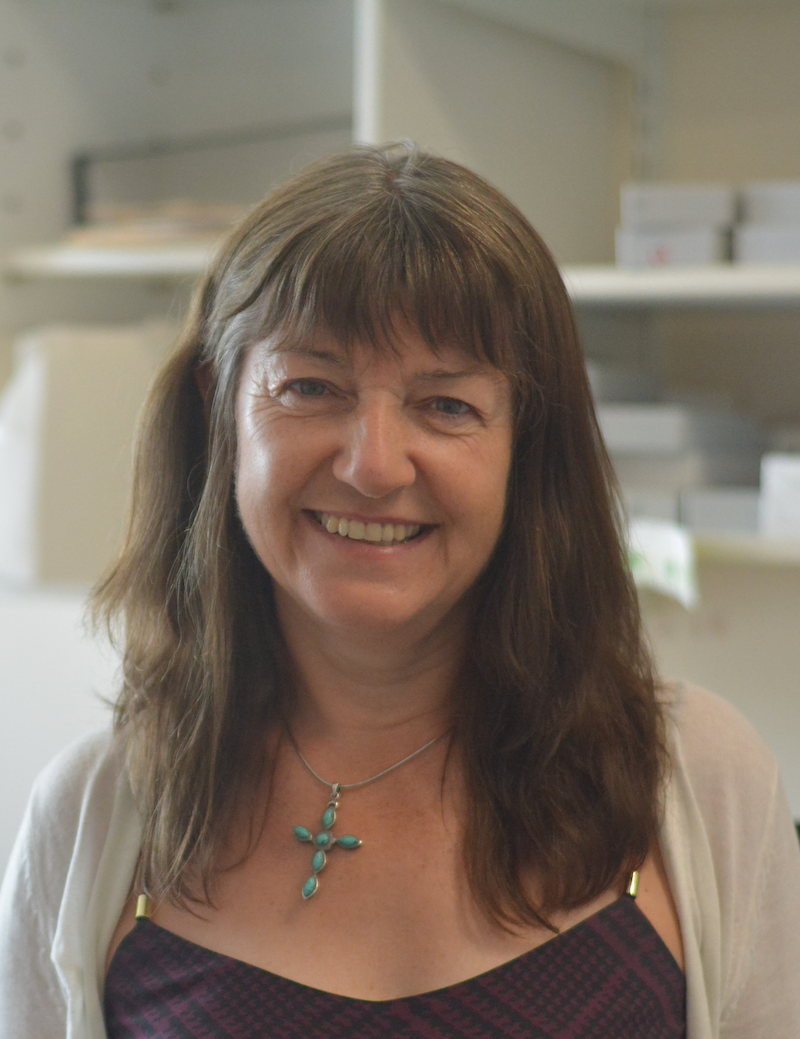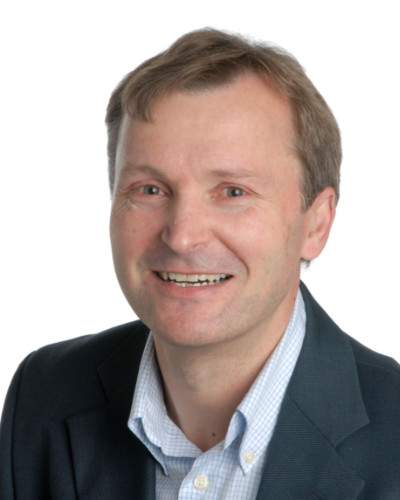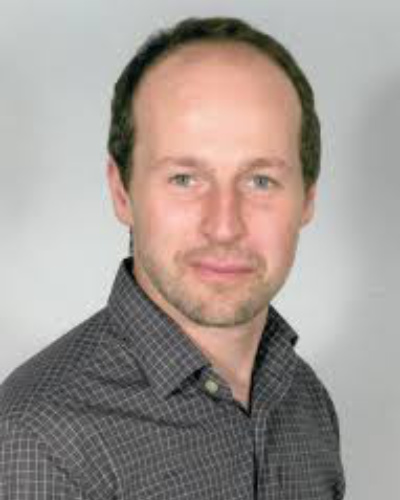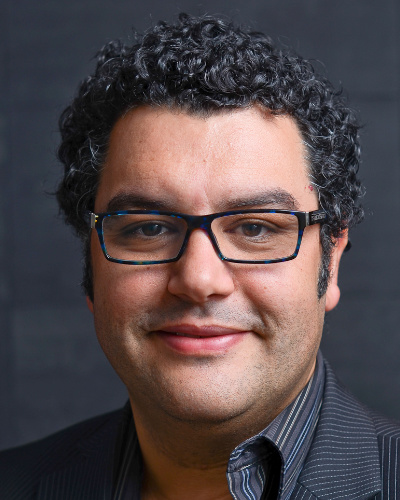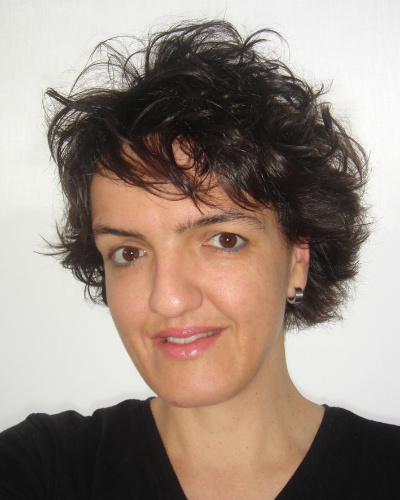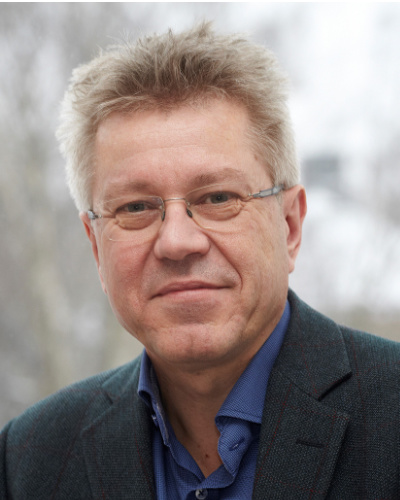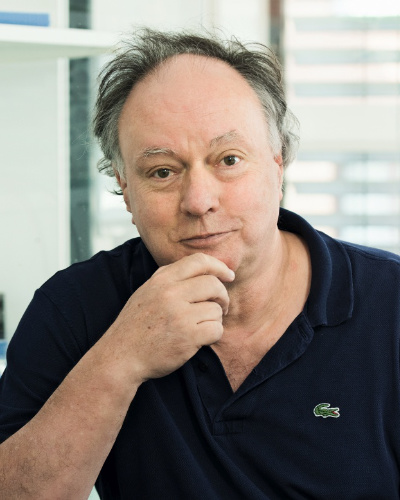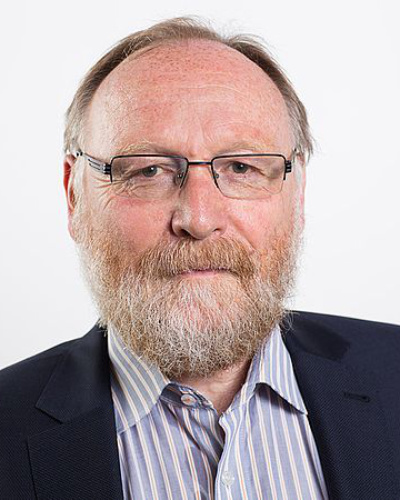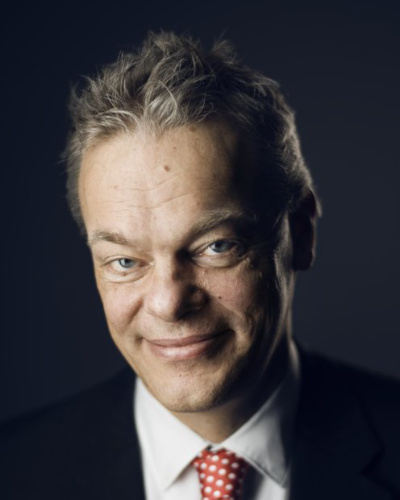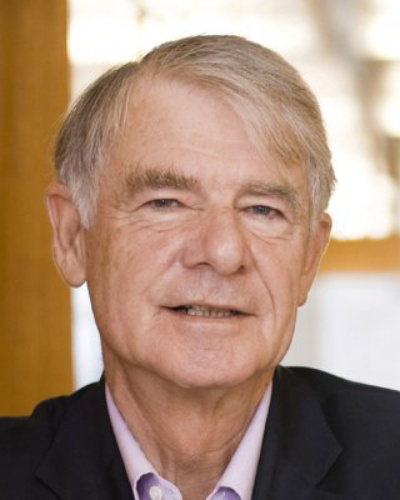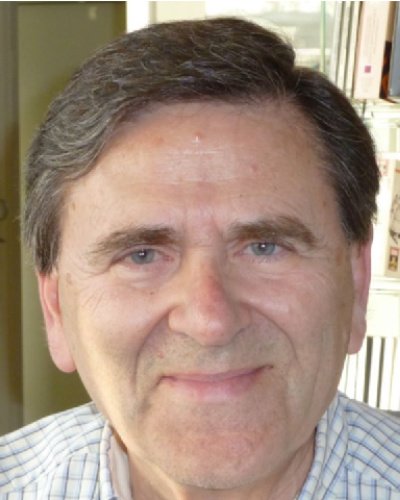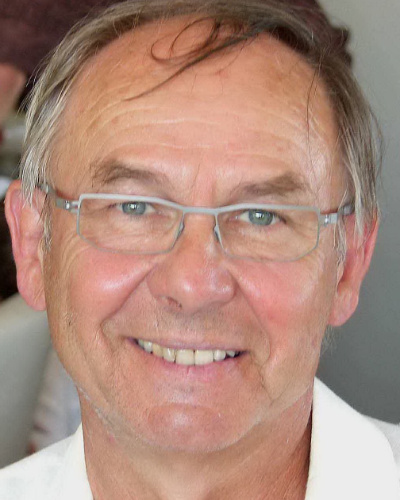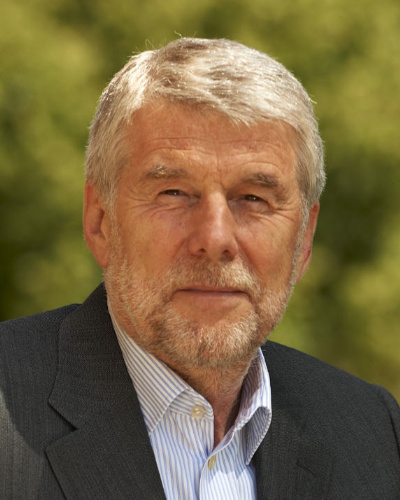The Programme Committee
The Programme Committee is composed of 17 elected or appointed members.
The committee’s composition takes into account its members’ fields of scientific expertise and the geographical distribution.
The Committee prepares and independently supervises the scientific programme of the FENS Forum, and selects the plenary lecturers, symposia and technical workshops.
The Chair of the Programme Committee is a member of and reports to the FENS Executive Committee and the Governing Council.

Laura Cancedda, Italy
Member
2024-2026
Laura Cancedda received her PhD at the Scuola Normale Superiore, Italy. She did her postdoc at the University of Berkeley, California. In 2006, she joined the Italian Institute of Technology (IIT) as the principal investigator of the Brain Development and Disease Lab. She was also a researcher at the Telethon Dulbecco Institute from 2016 to 2021, and she is an alumna of the FENS KAVLI network of excellence. In 2016, she received a Consolidator Grant from the ERC, and an Advanced Grant (FIS2) from the MUR. In 2022, she launched the start-up IAMA Therapeutics.
Cancedda’s lab studies brain development in health and disease in rodent models, and tries to discover novel therapeutic approaches for the treatment of neurodevelopmental disorders, with a strong drive for technology-transfer activities. The lab utilises a multidisciplinary approach with molecular biology, biochemistry, bioinformatics, electrophysiology and behavioural tests.

Matteo Carandini, United Kingdom
Member
2024-2026
Matteo Carandini is the GlaxoSmithKline / Fight for Sight Professor of Visual Neuroscience at University College London, where he co-directs the Cortexlab. Carandini’s research focuses on the computations performed by large populations of neurons in the mouse brain, the underlying circuits, and the resulting impact on behavior. He is a leader of the Neuropixels consortium, which develops next-generation probes to record from large populations of neurons. He is a founding member of the International Brain Laboratory, a consortium of 21 laboratories in 6 countries that seek to understand the basis of decision-making in the whole mouse brain.
Bluesky: @matteocarandini.bsky.social

María Dolores Ledesma, Spain
Host Society Chair
2024-2026
Dr María Dolores Ledesma received her B.Sc. in Chemistry (1991) and her PhD in Neuroscience (1995) at the Autonoma University of Madrid (Spain). She continued her research as postdoctoral fellow, awarded by EMBO and Marie Curie fellowships, at the European Molecular Biology Laboratory (Heidelberg, Germany 1996-2000). As independent researcher she worked at the Cavalieri Ottolenghi Scientific Institute (Turin, Italy, 2001-2006) and at the Biotechnology Institute VIB (KU Leuven, Belgium, 2006-2008).
Since 2008, she is staff scientist of the Spanish Research Council and Principal Investigator at the Centro Biologia Molecular Severo Ochoa (CBM, Madrid, Spain). Her group aims at understanding the role of lipids in neuronal physiology and pathology. Their research has unveiled the involvement of sphingomyelin or cholesterol in neuronal polarity, autophagy, calcium homeostasis and synaptic plasticity together with pharmacological and genetic strategies to treat brain pathology in lipid storage disorders such as Niemann Pick diseases. This research has fostered contact with patient associations, Biotech companies and clinicians and has inspired clinical trials.
Dr Ledesma serves as officer of the Spanish Research Agency, reviewer in European agencies for scientific evaluation, and is a member of scientific advisory boards of Niemann Pick patient associations and of the CBM steering committee.

Flavio Donato, Switzerland
Member
2024-2026
Dr Donato’s main interest lies in understanding how neuronal circuit development supports and constrains the emergence and operations of cognitive functions like memory and spatial navigation. Supported by an ERC Starting Grant and an Eccellenza Grant, Dr Donato’s laboratory at the Biozentrum of the University of Basel has discovered that the dynamic and divergent recruitment of neurogenesis-defined subpopulations of hippocampal neurons into memory ensembles supports memory persistence over time (Science, 2024). Additionally, this work demonstrated that this divergent recruitment regulates the opening and closure of a transient plasticity window following encoding, during which information from multiple learning sessions can be integrated into coherent memories. These results ground memory dynamics in the cellular composition of the neuronal ensembles involved and highlight neurogenesis as a key source of functional diversity among principal neuron subpopulations, underpinning their distinct contributions to cognitive functions.
As a postdoctoral researcher with Edvard and May-Britt Moser at the Kavli Institute for Systems Neuroscience, Dr Donato developed methods to study neuronal circuit development, leading to the discovery of an activity-dependent signal that promotes the maturation of the transverse hippocampal circuit by propagating stepwise through the network during the first month of a mouse’s life (Science 2017). This signal establishes a hierarchical sequence of maturation, with the superficial layers of the medial entorhinal cortex at the top, the hippocampus in the middle, and the deep layers of the entorhinal cortex at the bottom and reveals one of the driving forces behind microcircuit assembly and maturation in higher cortical areas related to cognition.
During a PhD at the Friedrich Miescher Institute, Dr Donato revealed principles of selective neuronal connectivity and discovered mechanisms by which parvalbumin interneurons regulate cortical plasticity (Nature, 2013). These findings have shaped current understanding of learning, memory, and cognitive dysfunction.
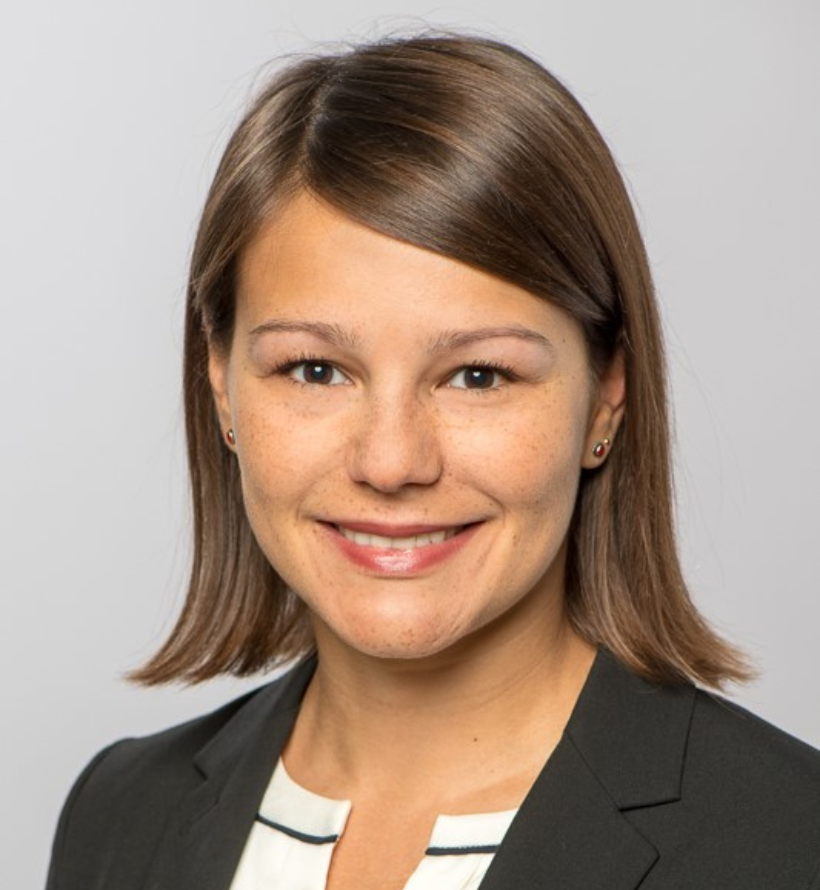
Julijana Gjorgjieva, Germany
Member
2024-2026
Julijana Gjorgjieva studied mathematics at Harvey Mudd College in California, USA and became interested in neuroscience at the University of Cambridge during a course in Computational Neuroscience while doing Part III of the Mathematical Tripos. After obtaining a PhD in Applied Mathematics at the University of Cambridge in 2011 with Stephen Eglen, she spent five years in the USA as a postdoctoral research fellow at Harvard University with Haim Sompolinsky and Markus Meister and Brandeis University with Eve Marder, supported by grants from the Swartz Foundation and the Burroughs-Wellcome Fund. In 2016, she set up an independent research group at the Max Planck Institute for Brain Research in Frankfurt, Germany and in 2022 became a Professor at the Technical University of Munich, Germany. She has received an ERC Starting Grant in 2018 for her research on theoretical models of neural circuit organization and computation during postnatal development and is further supported by a Human Frontiers Science Program to study plasticity and evolution of sensory systems under different environmental constraints. She is also a member of the steering committee of the Bernstein Network for Computational Neuroscience and has co-chaired the Bernstein Conference in Computational Neuroscience in 2020 and 2021. In 2024, she awarded the ERC Consolidator Grant 2024 to study feedback computations in the cortex.

Georgia Gregoriou, Greece
Member
2024-2026
Georgia Gregoriou is a Full Professor of Physiology at the Medical School of the University of Crete and an affiliated member of the Institute of Applied and Computational Mathematics at the Foundation for Research and Technology Hellas (FO.R.T.H.). Following a PhD in Neuroscience at the University of Crete in 2001, she did postdoctoral work first in neuroanatomy at the University of Parma in Italy and subsequently in neurophysiology at the laboratory of Neuropsychology at NIMH, NIH and at the McGovern Institute for Brain Research at MIT in the U.S.A. In 2009, she moved to Greece for a faculty position.
Research in her lab focuses on the neural mechanisms of perceptual and cognitive functions with a particular emphasis on visual attention and working memory. She is employing multi-channel electrophysiological recordings from multiple brain areas and advanced computational analysis methods to study the neural code of cognitive functions. Her goal is to elucidate how the representation of sensory and cognitive variables changes depending on behavioural goals and how flexible behaviour is implemented in the brain despite the rigid anatomical connections. She is also particularly interested in the way the temporal structure of neuronal activity contributes to the formation of functional networks according to behavioural demands and its role in long-range communication among selected neuronal populations.

Bassem Hassan, France
Member
2024-2026
Dr Bassem Hassan is a Team Leader and Inserm Research Director at The Paris Brain Institute (ICM) in Paris, France. He obtained his Bachelor of Science in Biology at the American University of Beirut, Lebanon, and his Ph.D. in Molecular Genetics at The Ohio State University, U.S.A in 1996. Between 1996 and 2001, Dr Hassan was an HHMI (Howard Hughes Medical Institute) and an NIH (National Institutes of Health) Postdoctoral Fellow at Baylor College of Medicine in Houston, Texas working on the transcriptional mechanisms of early neurogenesis in Drosophila and mice. In 2001, he was recruited to the VIB (Flemish Institute of Biotechnology) and the University of Leuven Medical School in Belgium to establish the first Drosophila lab in the country. He worked at the VIB and the University of Leuven as a Group Leader and Professor until the end of 2015. In 2016, Dr Hassan was recruited to the Institut du Cerveau – Paris Brain Institute (PBI) to establish the Laboratory of Brain Development, and was then appointed as the PBI’s Scientific Director, Director of Core Facilities, and Deputy Executive Director in 2019.
He won the EMBO Young Investigator Award in 2003, became an EMBO member in 2009, and was honoured as an Einstein Visiting Fellow and Allen Distinguished Investigator in 2016, and Roger De Spoelberch laureate in 2019.
Dr Hassan’s research focuses on understanding the genetic mechanisms that regulate the early development of the nervous system from cell fate specification to neural circuit formation, using fruit fly, mouse and human iPS models. His work deals with the role that transcriptional regulation and cell-cell signalling shape the identity and connectivity of neurons.
Bluesky: @bassemh.bsky.social

Jacek Jaworski, Poland
Member
2024-2026
Jacek Jaworski is a professor and the Deputy Director for Science at the International Institute of Molecular and Cell Biology in Warsaw, where he leads the Laboratory of Molecular and Cellular Neurobiology. From the start of his career, he focused on molecular and cellular neurobiology, particularly on the contribution of studied processes to nervous system diseases. Among his achievements, the most important is the first demonstration of the involvement of the mTOR kinase in neuronal development. Consequently, his independent research career revolves around unravelling the molecular mechanisms responsible for proper neuronal morphology, specifically emphasizing mTOR-regulated cellular processes. In his recent work, Prof. Jaworski collaborates with a network of European researchers to investigate how these processes contribute to neurodevelopmental pathologies such as epilepsy and tuberous sclerosis. In addition to discovering mTOR’s role in neuronal function, Prof. Jaworski has also made significant contributions in collaboration with Prof. Casper Hoogenraad from Utrecht University. Together, they described for the first time the involvement of microtubule plus-end binding proteins in dendritic tree formation and structural synaptic plasticity in neurons. The research conducted by Prof. Jaworski and his team has been published in several prestigious peer-reviewed journals, including Neuron, PNAS, EMBO J., and J. Neurosci. In 2023, he was elected a European Molecular Biology Organization member. Prof. Jaworski is also very active in the Polish neuroscience community and advises on developing neuroscience centres in less privileged countries (e.g., COBRAIN in Armenia). Last but not least, he has successfully served on program committees at several international and national conferences.
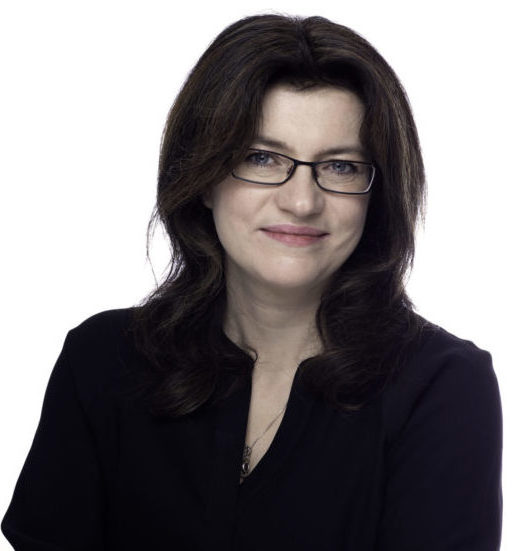
Ragnhildur Thora Karadottir, United Kingdom
Member
2024-2026
Ragnhildur Thóra Káradóttir is a director of the MS Society Cambridge Centre for Myelin Repair and a Professor of Cellular Neuroscience at the Cambridge Stem Cell Institute, University of Cambridge. She also holds a part time position in Neurophysiology at the University of Iceland.
She completed her undergraduate degree in Biochemistry at the University of Iceland and subsequently entered the Wellcome Trust 4 year PhD Programme in Neuroscience at UCL. After completing her PhD, she was awarded a Dorothy Hodgkin Fellowship by the Royal Society, followed by a Wellcome Trust Career Development Research Fellowship and an ERC Consolidator Award which enabled her to establish and consolidate her own research team at the University of Cambridge.
Her research focuses on determining the changes in myelin and myelin repair throughout the lifespan, and on understanding how neuronal activity can regulate oligodendrocyte precursor cell (OPC) differentiation and myelin plasticity in both health and disease.

Ya Ke, Hong Kong
Member
2024-2026
Dr. Ya Ke is a professor at the Chinese University of Hong Kong’s School of Biomedical Science. She studied medicine and received doctoral and postdoctoral training in neuroscience. She is interested in the neurobiological basis, especially neural circuit mechanisms, underlying brain functions and behaviours, as well as their aberrations in brain disorders such as neurodegenerative and neuropsychiatric diseases.
Her current research focuses on higher cognitive functions, emotions, and social behaviours. To uncover the neural underpinnings of these functions, a multi-disciplinary approach is adopted, employing novel behavioural paradigms, circuit mapping, opto–/chemo-genetics, electrophysiological recordings, brain imaging, molecular biology as well as machine learning.
She is in the executive council of the Hong Kong Society of Neurosciences and had served in the program committee of the 8th Congress of the Federation of Asian-Oceanian Neuroscience Societies in 2024. She is also serving as a member of the International Brain Research Organization (IBRO)-Asian Pacific Regional Committee, starting her term of service in 2025.
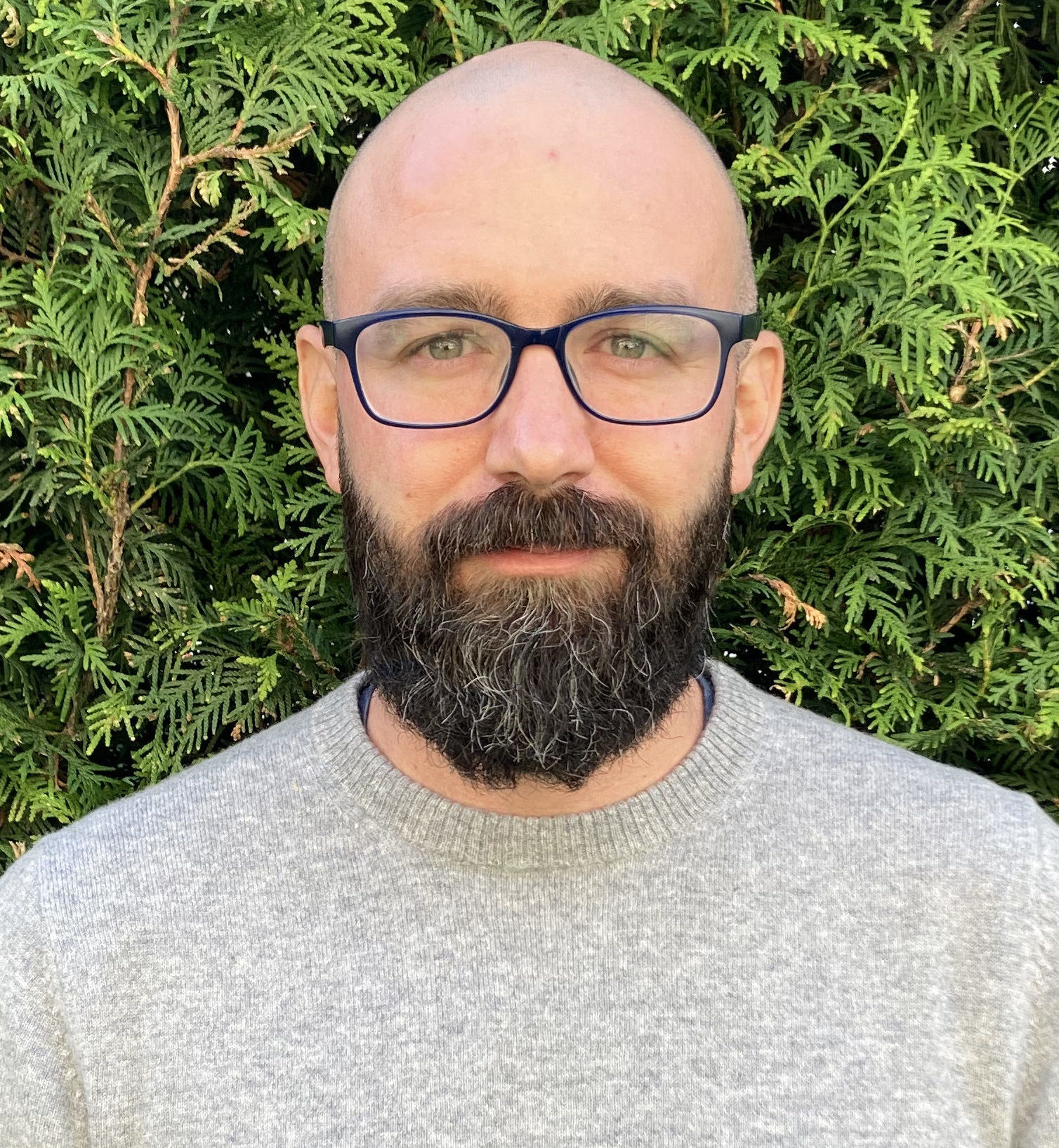
Juan Pablo Lopez, Sweden
Member
2024-2026
Dr. Juan Pablo Lopez is an Assistant Professor in the Department of Neuroscience at Karolinska Institutet (Sweden). Pablo received his undergraduate degrees in Psychology and Biology from Florida International University in Miami (USA). He received his doctoral degree (Ph.D.) from McGill University in Montreal (Canada), under the mentorship of Prof. Gustavo Turecki, where he studied the role of non-coding RNA in major depression, suicide, and antidepressant treatment response. In 2016, Pablo moved to Munich (Germany) for a postdoctoral fellowship in the laboratory of Prof. Alon Chen, at the Max Planck Institute of Psychiatry. During his postdoc, he investigated the neurobiology of stress responses, using single-cell transcriptomics.
In 2022, Pablo was recruited by the Department of Neuroscience at the Karolinska Institutet. His laboratory seeks to understand and characterise the molecular mechanisms, cellular circuits, and complex social behaviours, associated with stress-related psychiatric disorders and their treatments, using animal models.

Gaia Novarino, Austria
Member
2024-2026
Gaia Novarino obtained her Ph.D. in Developmental Biology from the University of Rome La Sapienza (Italy). During her doctoral studies, she relocated to Germany and joined the Max Delbrück Center for Molecular Medicine, where she focused on investigating chloride transporters associated with human genetic disorders. In 2010, she moved to San Diego to conduct postdoctoral research at the School of Medicine of the University of California San Diego, where her research primarily revolved around the genetics of neurodevelopmental disorders.
In 2014, Gaia Novarino began a new chapter in her career by joining the Institute of Science and Technology Austria (ISTA). Initially appointed as an Assistant Professor, she later advanced to the position of Full Professor. She has been recognised as a FENS-Kavli Network of Excellence scholar, an ERC grant holder, and a Simons Foundation Investigator. In 2016, her groundbreaking research on the molecular mechanisms underlying human neurodevelopmental disorders was honored with the Boehringer Ingelheim FENS Research Award. Since 2021, she has served as ISTA Vice President for Science Education, and in 2024, she was appointed Executive Vice President of ISTA.

Albino Oliveira-Maia, Portugal
Member
2024-2026
Albino J. Oliveira-Maia is a physician-scientist at the Champalimaud Foundation, where he is director of the Neuropsychiatry Unit and Laboratory. Albino is also Assistant Professor of Neuroscience and Psychiatry at NOVA Medical School, Vice-President of the Portuguese Society for Psychiatry and Mental Health, President of the Ethics Committee at the Portuguese Institute for Addictive Behaviours and Dependence (ICAD, IP) and Vice-President of the Portuguese Brain Council.
He trained in fundamental neuroscience at Duke University, studying sensory and metabolic determinants of food consumption in rodents, and is currently funded by the European Research Council to study these mechanisms in humans. While training to become a psychiatrist in Lisbon, Albino studied public health at Harvard University, where he developed interests and expertise on non-invasive brain stimulation. This led to development of a research and clinical programme at the Champalimaud Foundation, where advanced behavioural, physiological and neuroimaging approaches are used to establish diagnostic, therapeutic and prognostic biomarkers for difficult-to-treat neuropsychiatric disorders and develop new of existing treatments.
In addition to having published close to 100 papers, Albino has presented his work in close to 400 posters and oral presentations, including several keynote addresses and plenary talks.
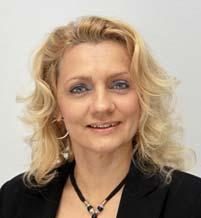
Dóra Reglodi , Hungary
Member
2024-2026
Dóra Reglodi is a Professor and Chair of the Department of Anatomy at the University of Pecs (Hungary). Her research focuses on neuroendocrinology and neuroprotection/general cytoprotection. Most of her studies deal with different effects of a neuropeptide, PACAP (pituitary adenylate cyclase activating polypeptide), with focusing on its neuroprotective effects. Her team showed strong antiapoptotic, antiinflammatory and antioxidant effects of PACAP, leading to protection in vitro in different cell cultures and in vivo in models of Parkinson’s disease, Alzheimer’s disease, stroke and retinopathies. PACAP has general cytoprotective effects shown in several other organs. The lack of the neuropeptide, due to the lack of these protective effects, increases vulnerability of animals to different insults and leads to accelerated aging. Dora Reglodi has published over 240 articles and has mentored 22 PhD students so far. She has received numerous awards and honors, including the Life and Science-publication award (2004) and the L`Oreal-UNESCO for Women in Science award (2005).
She was President of the Hungarian Neuroscience Society from 2016 to 2018 and was Chair of the Organisation Committee for the FENS Regional Meeting in 2017. She is an ALBA Network Ambassador, she was also the FENS Secretary General for 2020-2022 and was a member of the Host Society for the FENS Forum 2024.

Daniela Schiller, United States
Member
2024-2026
Dr Daniela Schiller is a Professor in the Department of Psychiatry, the Nash Family Department of Neuroscience, and the Friedman Brain Institute, at the Icahn School of Medicine at Mount Sinai. Her research is focused on how the brain represents and modifies emotional memories. Schiller got her PhD in Tel Aviv University where she developed a laboratory model for negative symptoms of schizophrenia. She then continued to do a postdoctoral fellowship at New York University where she examined methods for emotional memory modification in the human brain. Schiller joined Mount Sinai in 2010 and has been directing the laboratory of affective neuroscience since. Her lab has delineated the neural computations of threat learning, how the brain modifies emotional memories using imagination, and the dynamic tracking of affective states and social relationships. Schiller’s work has been published in numerous scholarly journals, including Nature, Neuron, Nature Neuroscience, and the Proceedings of the National Academy of Sciences. She is a Fulbright Fellow and a Kavli Frontiers of Science Fellow, and has been the recipient of many awards, including the New York Academy of Sciences’ Blavatnik Award, and the Klingenstein-Simons Fellowship Award in the Neurosciences.
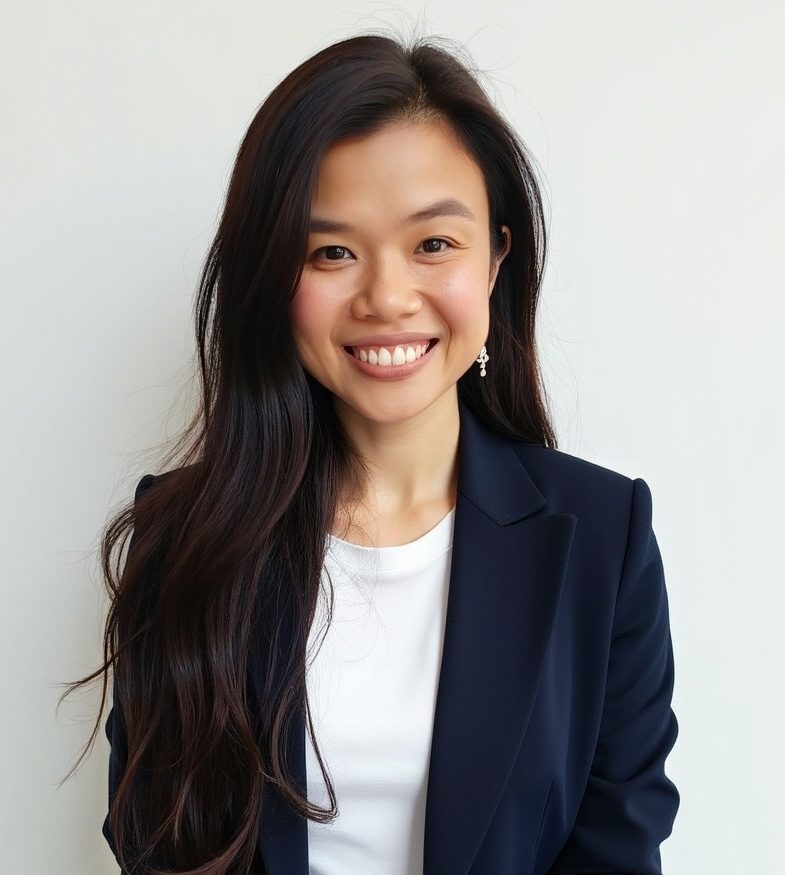
Dorothy Tse, United Kingdom
Member
2024-2026
Dr Dorothy Tse is a Reader (Associate Professor) in the Department of Psychology at Edge Hill University in the UK. Dr Tse completed her MRes and PhD in Neuroscience at the University of Edinburgh in Professor Richard Morris’s lab and continued her postdoctoral research there. Her expertise spans the neurobiology of learning and memory, early detection of dementia, and promoting healthy ageing. She is a FENS-Kavli Network of Excellence scholar since 2023. Additionally, she serves as the Joint Meetings Secretary for the British Neuroscience Association (BNA) and as Co-Chair for the BNA2025 Programme Organising Committee.
Since establishing her own lab in 2021, her primary focus has been exploration of the determinants of memory in both humans and rodents. The Tse Lab investigates how the brain processes and retains new information, focusing on how various factors influence episodic, semantic, and spatial memories. The lab’s research themes include studying the effects of prior knowledge and novelty on learning, the impact of ageing and dementia on memory, and developing translational behavioural paradigms. Utilising methods such as behavioural analysis, virtual reality, and EEG, the lab’s work is supported by several prestigious organisations, including the Academy of Medical Sciences. The lab collaborates with organisations like the University of the Third Age, the Walton Center to promote healthy ageing and brain health through community-driven research.
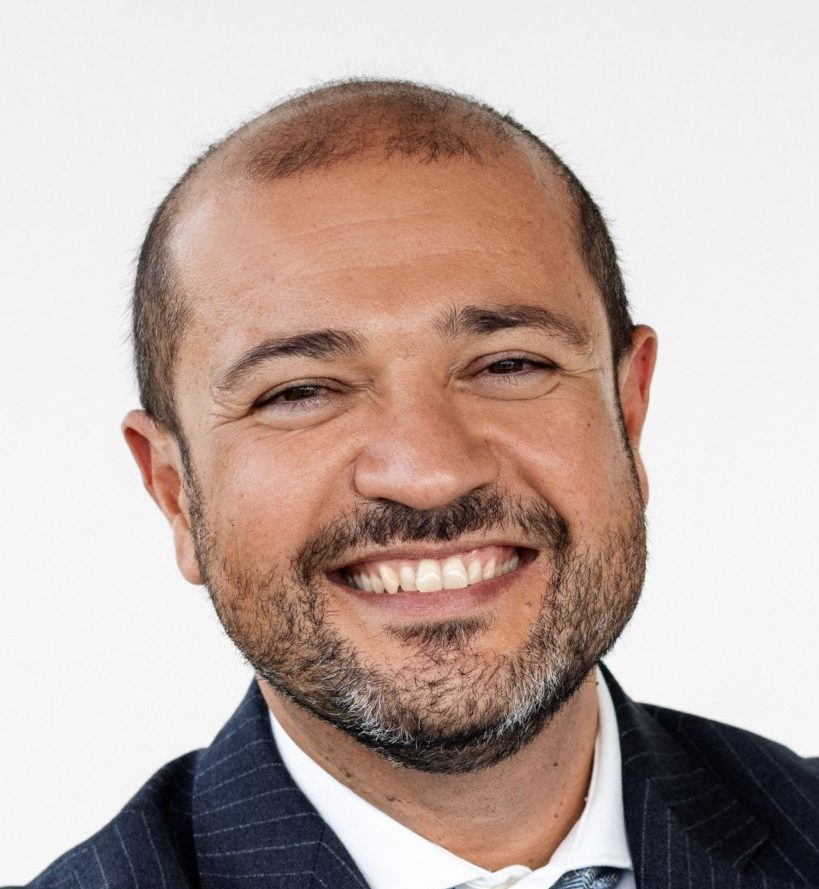
Emre Yaksi, Norway - Turkey
Programme Committee Chair
2024-2026
Throughout his career, Dr Emre Yaksi developed and used optical, electrophysiological and genetic tools for studying neural computation in small genetically tractable animals, namely fruitflies and zebrafish. The unique combination of these novel technologies enables neuroscientists to design innovative experiments to study neural circuits, which were unthinkable only a few years ago. Together with his team, Dr Yaksi investigates how sensory information is represented in the brain and how it interacts with the internal states of the brain associated with adaptive behaviours.
Dr Emre Yaksi received his B.Sc. (2001) in Molecular Biology at Middle East Technical University, Ankara-Turkey. He obtained his PhD (2007) at Max Planck Institute for Medical Research, Heidelberg-Germany. He worked as a post-doctoral fellow (2007-2010) at Harvard Medical School, Boston-USA. He was an assistant professor (2010-2015) at Neuroelectronics Flanders at Catholic University of Leuven, Belgium. Since 2015, Dr Yaksi has been a professor at the Kavli Institute for Systems Neuroscience at the Norwegian University of Science and Technology, Trondheim, Norway. Since 2022, Dr Yaksi has been an adjunct professor at Koç University Hospital, Istanbul, Turkey.

